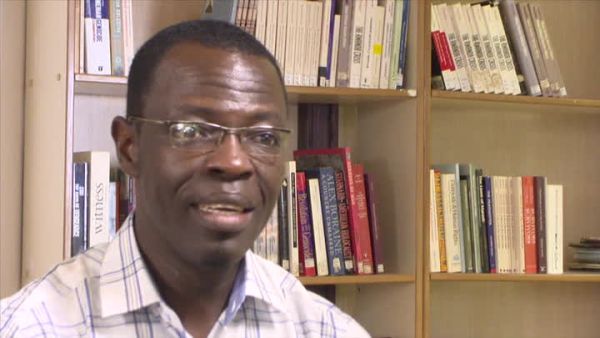Central African Republic testimonies document sectarian violence
Editor’s note: This story is part of a series highlighing the Institute's work in connection with various genocidal conflicts for Genocide Awareness Month, which occurs in April.

Two missions converged in Kigali when Aegis Trust hosted leaders from USC Shoah Foundation and, in a separate convening, were welcoming a contingent from Central African Republic. The latter conversation was a part of Aegis Trust’s efforts, under the direction of Freddy Mutanguha, African Regional Director, to expand peace education.
The four testimonies, one in English from Alain Lazeret and the others in French, are from witnesses to the extreme sectarian violence in the Central African Republic between the pro-Muslim coalition Seleka and the pro-Christian movement Anti-Balaka that began in 2012 and escalated after Michel Djotodia seized power from François Bozizé in March 2013. By 2017, the ongoing conflict had resulted in the death of 3,000–6,000 and the displacement of 500,000 people internally and 500,000 to other countries.
The testimonies were indexed and made publicly accessible through the Visual History Archive in July 2017.